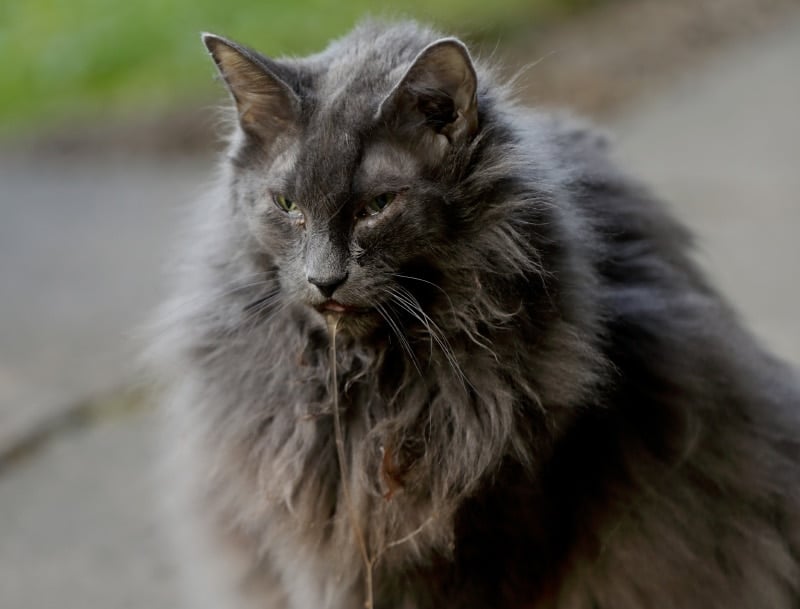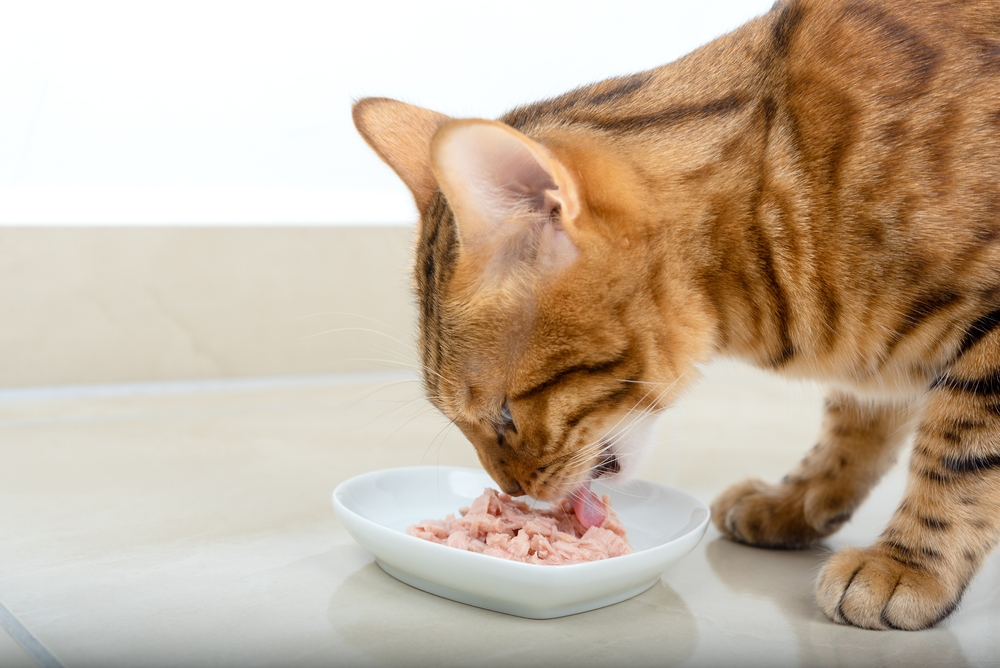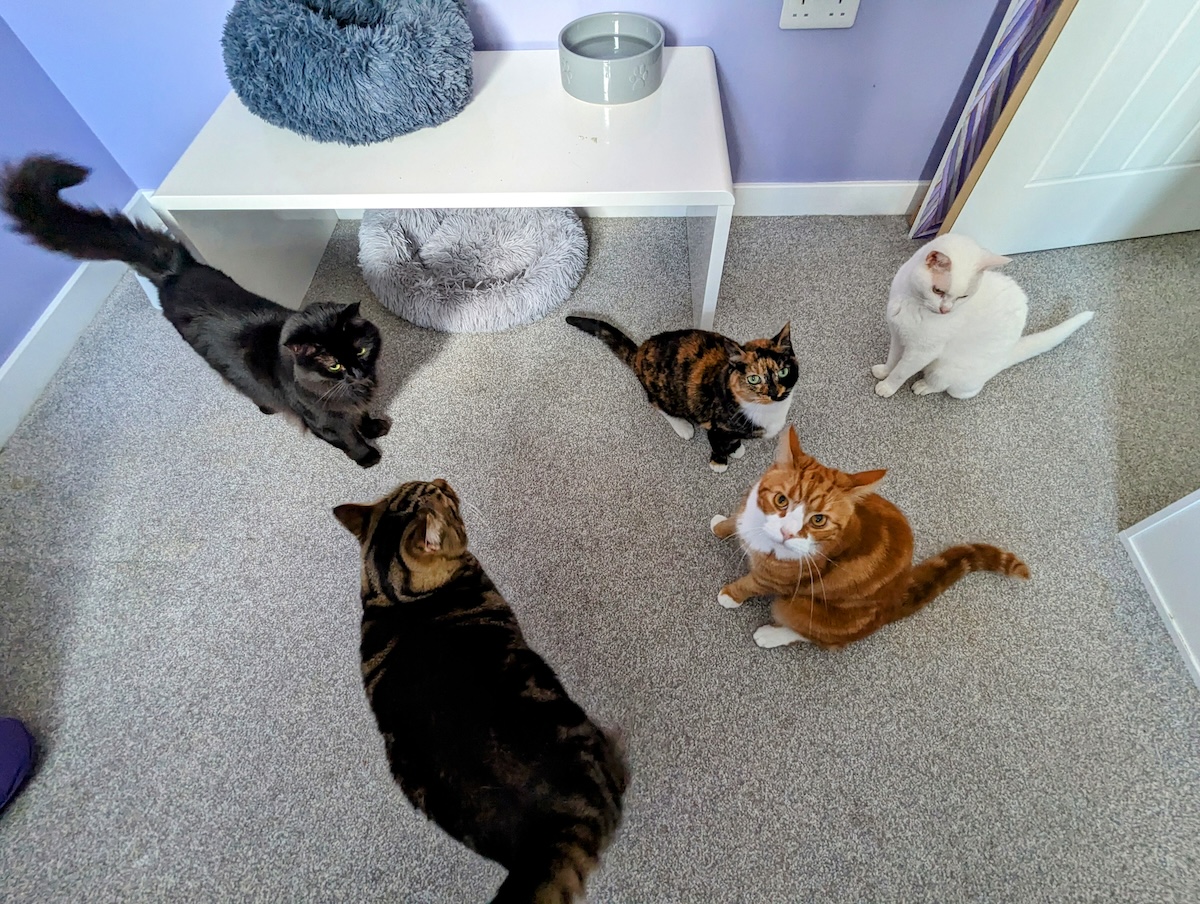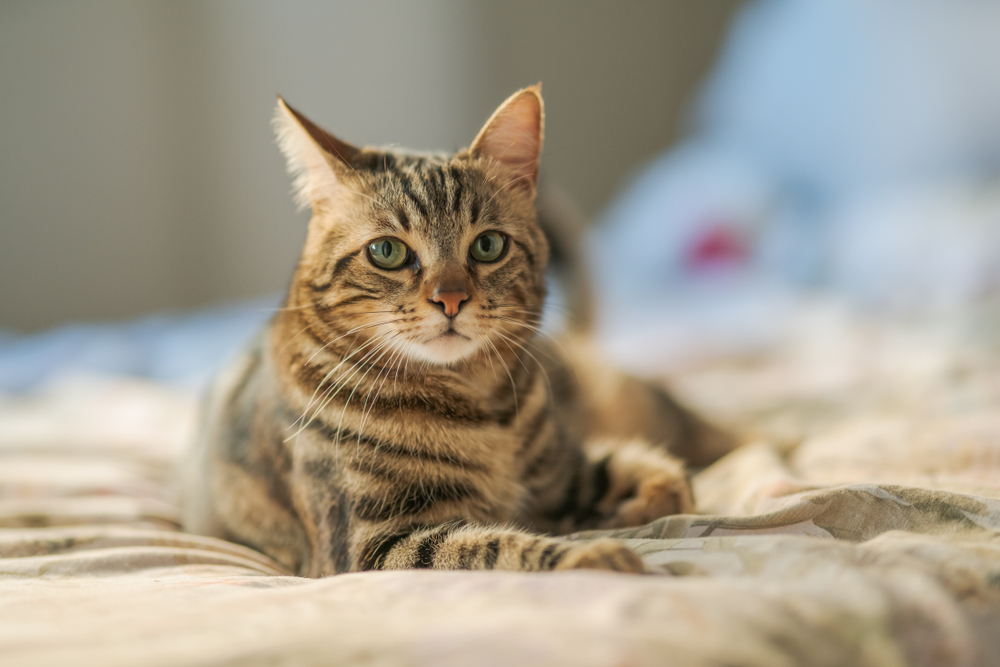Most cat owners are aware of the harmful effects that pine oil can have on cats and avoid using products that contain it. Pine-Sol is a popular multi-surface cleaner, and while it still does have “pine” in its name, most of the current formulations do not contain pine oil. Pine-Sol is safe to use in the household with cats as long as the instructions are followed cats are kept out of the area when in use. However, Pine-Sol can be dangerous for cats if ingested or if it gets on their skin. So, it’s best to keep it stored in a safe, unreachable place for cats and only use it when they’re not in the same room.
What’s Inside Pine Sol?
Pine-Sol is a multi-surface cleaner that can be used on most non-porous surfaces. It was first invented in 1929 and contained a high concentration of pine oil. The amount of pine oil in Pine-Sol has reduced over the years, and it’s no longer a main ingredient in its current formula.1 However, there are still formulations of Pine-Sol available online, so always check the ingredients of the product you are using.
Even if the Pine-Sol product you are using does not contain any pine oil, it’s still not safe to have it near your cats because it contains other chemicals that are toxic to cats. Harmful chemicals inside Pine-Sol include propyl heptyl ether, alcohol ethoxylates, and formic acid. These chemicals are powerful cleaning agents that are harmful if swallowed.

Can I Use Pine-Sol Around Cats?
Pine-Sol can be used in homes with cats as long as you follow the guidelines. According to Pine-Sol’s instructions, Pine-Sol can be used in pet areas, but it shouldn’t be used as a pet shampoo. Bottles of Pine-Sol should also be sealed securely and kept out of reach of children and pets.
If you plan to use Pine-Sol, it’s important to keep your cat away from surfaces until the Pine-Sol has dried completely. Stepping on wet Pine-Sol can irritate your cat’s paws, and your cat can end up swallowing Pine-Sol if they try to lick their paws clean.
Pine-Sol is safe after it has dried completely. If you have a fairly docile cat that doesn’t mind waiting in a different room while you use Pine-Sol, you shouldn’t run into any safety issues. However, if you have a particularly active or curious cat that won’t stay away while you clean, you may want to consider using natural, non-toxic household cleaning products.
What to Do If Your Cat Comes in Contact With Pine-Sol
Pine-Sol mostly irritates the eyes, but it can also be a skin irritant. So, if your cat steps on wet Pine-Sol, make sure to rinse their paws with gentle soap and water right away. Then, be on the lookout for any skin irritation during the next few hours. Your cat’s skin can be itchy, red, or inflamed.
If your cat ingests any Pine-Sol, make sure to contact your veterinarian or an animal poison control hotline for further instructions. Cats can display varying signs if they’re experiencing chemical poisoning. Here are some signs to look out for:
- Excessive drooling
- Vomiting
- Diarrhea
- Weakness
- Increased heart rate
- Increased thirst
- Lethargy
- Restlessness
- Muscle tremors
- Seizures
It’s not recommended to induce vomiting at home, as this can create further complications for your cat. Getting your cat proper veterinary care as quickly as possible will ensure that your cat gets adequate care and has the best chance for recovery.

Conclusion
Pine-Sol can be used in pet spaces, but you must follow certain guidelines if you choose to use it. Before you use Pine-Sol, make sure to keep your cat in a separate space so that they don’t come in contact with it. Wait until surfaces have dried completely before allowing your cat back into the room. If an accident occurs and your cat ingests some Pine-Sol, make sure to get them veterinary care right away so that they get the proper treatment. If it’s particularly challenging to adhere to these guidelines, it’s best to switch to a different household cleaner that uses non-toxic ingredients.
Related Read:
- How Often Should You Change the Water in a Cat Water Fountain? Vet-Approved Care Facts
- Can a Q-Tip Help a Cat in Heat? (Vet Answer)
Featured Image Credit: Gleb Usovich, Shutterstock











